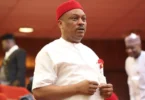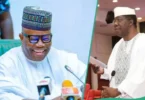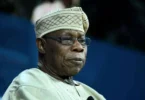Former President Olusegun Obasanjo has reportedly issued a warning to people making money from the lucrative fuel importation industry that they will try to sabotage the Dangote Petroleum Refinery’s operations. This information is based on a report from The PUNCH. His remarks follow accusations made by Alhaji Aliko Dangote, President of the Dangote Group, that the $20 billion refinery is being sabotaged by powerful interests known as “mafias.... CLICK TO READ THE FULL NEWS HERE▶▶
Obasanjo emphasized that the success of the Dangote refinery could inspire both local and foreign investments in Nigeria.
However, he noted that established fuel importers, fearing a loss of their lucrative market, would likely take measures to impede Dangote’s efforts.
“If those who are selling or supplying refined products for Nigeria feel that they will lose the lucrative opportunity, they will make every effort to get him frustrated,” he stated.

Recent reports indicate that the Dangote refinery and other domestic refiners have yet to purchase crude oil in naira, despite a directive from President Bola Tinubu to the Nigerian National Petroleum Company Limited (NNPC).
This delay has raised concerns about supply chain disruptions, as Dangote has accused international oil companies of selling crude at inflated prices.
The Nigerian Midstream and Downstream Regulatory Authority (NMDPRA) has been accused of exacerbating the situation by granting licenses for the importation of substandard fuel, a claim the authority denies.
NMDPRA Chief Executive Farouk Ahmed defended their position, stating that the country would not halt fuel imports to prevent a monopoly by the Dangote Group.
Obasanjo also criticized Nigeria’s heavy reliance on oil, arguing that the country has neglected other vital sectors such as gas and agriculture.
“I believe we made a very, very deadly mistake. We put all our eggs in one basket of oil. We even ignored gas. We were flaring gas, which is a very important commodity,” he asserted.
On the recent removal of fuel subsidies by the Tinubu administration, Obasanjo expressed concern for the economic hardships this decision could impose on citizens.
He argued that such reforms should be implemented with consideration for their impact on the populace











